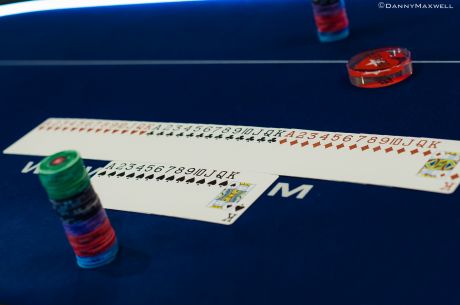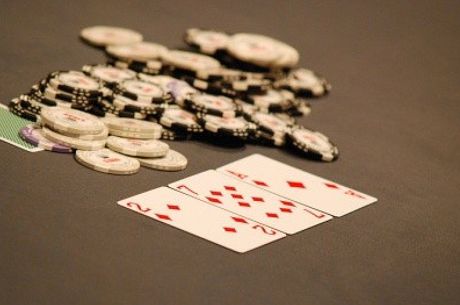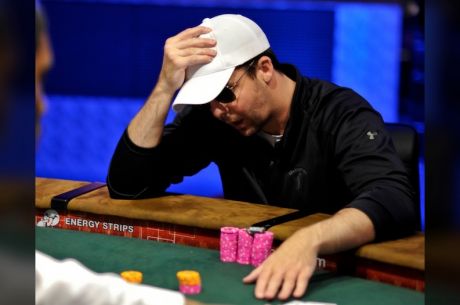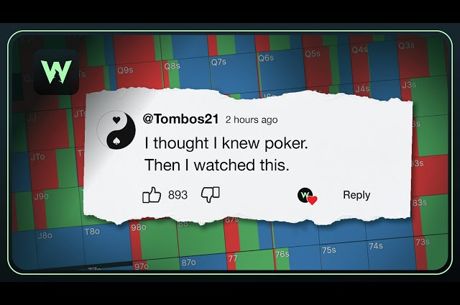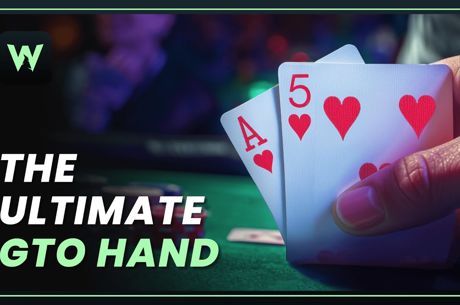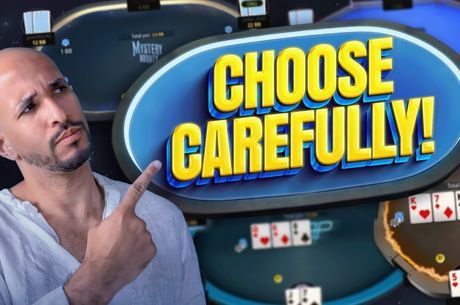Look At Yourself Before Blaming Others for Poker Losses
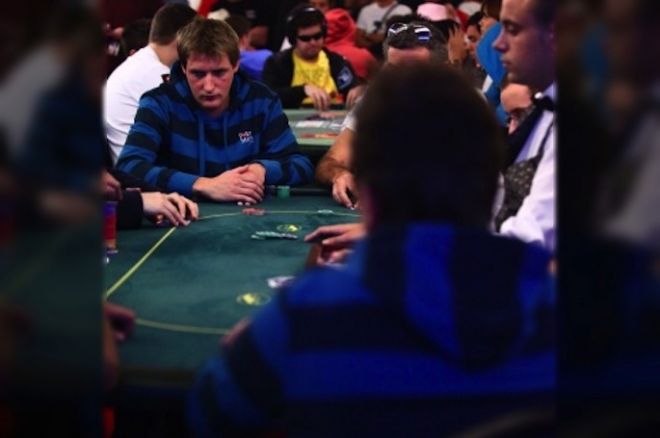
Poker players are funny beasts. Often they chalk their losses up to bad luck, yet every hand that they win — even if it is from a fortunate run out of the community cards — comes down to having outplayed their opponents.
This is a dangerous school of thought that we will explore more a little later. For now I want to recall a live cash game hand I recently played that highlights why you should always look at how you played a hand before blaming others for your losses.
I may have mentioned in previous articles I have started to become somewhat of a regular in a cash game at my local casino. It is a no-limit hold’em game that has blinds of £0.50/£0.50 where straddles are allowed — although they aren’t common — and where the size of the pot can grow rapidly.
From my experience of the game thus far, it is frequented by one or two players who are solid players, a couple who think they are solid but can only win against the weaker competitors, and the rest who are a mix of (frankly) terrible players and others looking to gamble during tournament breaks or after busting from a tournament.
The hand in question happened a couple of Sundays ago and started with a player I’d not played with before limping in the cutoff for £0.50. From the button I raised to £2.50 with J♠10♠. The small blind then three-bet to £13, the initial limper folded, and I called the reraise.
The small blind was also a player with whom I’d not locked horns previously, so I didn’t know anything about his playing style or skill level. What I did know was that he was keen to up the stakes to £1/£1, citing the fact he was down a chunk of change from table games that afternoon and that he had run bad in the tournament from which he’d recently busted. (That in itself is a horrible idea, but that is for a different article entirely.)
Back to the hand. The flop fell 9♦A♣4♠ and the small blind checked to me. This surprised me because a lot of the players in these games love to play ace-rag or at least try to represent the ace. I checked behind.
The turn brought the Q♥, giving me an open-ended straight draw, and again villain checked. At this point I was a little perplexed as to what he could have held. I was going to bet, then decided if he had slow played a hand such as 9x9x, AxQx, or something similar then he would check-raise — a common move in lower-stakes games — and I would be forced to fold my draw. With that in mind, I checked behind once more.
After burning a card, the dealer placed the K♠ onto the river, gifting me the nuts. Villain led for £12 and after double-checking there wasn’t a flush possible, I made it £33 to go. To my surprise, villain then moved all-in for an additional £70 and I obviously snap-called. I turned over my straight and he flipped over A♥A♦ for a set of aces.
“F***ing lucky river! It’s always the river,” said the now-stacked player as I raked in a nice pot. “Well played mate, fishing for the river and getting there. They always get there on the river versus my big hands, I can’t do anything right.”
His tirade was partly correct — it was a lucky river. It was a very lucky river, indeed. Without me completing my straight, my cards would have hit the muck without a second thought. What he failed to recognize was that it was his play that allowed me to get to the river and catch that lucky card.
I can see why he’d slow play his set on the flop, and if he had chosen to bet the turn I would have very likely called. But his river play is what cost him his stack. Agreed, he knows nothing about how I play. He could possibly put me on a hand such as KxQx and decide I’m getting a little frisky — in fact, I think he put me squarely on that hand. But in my opinion, when he jams all-in on the river the only hand that is ever calling him is a straight.
The stacked player’s main problem was his mindset. While he was angry that he lost £100, I was under the impression that he truly believed what he said in his rant. And if that is the case, he’s setting himself up for future failures. He needs to realize that he is in control of his own play and can shape how a hand plays out, and that it’s not all down to Lady Luck not being his friend.
It is important to look at and evaluate your own play on a regular basis, regardless of whether you win or lose. You’ll often find that you could have won more money by playing a hand differently, or even prevented a large loss like in our example.
You will also realize that you’re not always unlucky and that you do get your fair share of good fortune — something that is easy to forget about because we all like to think we’re Patrik Antonius when we play. Having a negative “the world is against me” attitude sets you up for failure and when you do lose a big pot your fears are confirmed and the cycle goes on.
So before you blame your bad luck or the bad play of others, take a long, hard look at yourself.
Want to stay atop all the latest in the poker world? If so, make sure to get PokerNews updates on your social media outlets. Follow us on Twitter and find us on both Facebook and Google+!

